Description
ABSTRACT
Exploring the Requirement of Capital Adequacy and Bank Stability in Nigeria
Dr. Amaechi Chinenyeze*
The CBN and the NDIC are responsible for making rules and guidelines for banks in Nigeria. The CBN is also responsible for setting the capital requirements of banks in accordance with Basel Principles. Nigerian banks have been implementing capital standards that are above the Basel minimum requirements. Despite this, recurring bank failure has not been a thing of the past in the country. Factors such as inadequate regulatory measures prior to the introduction of SAP in Nigeria, non-performing loans, corporate governance failures and collusion between bank executives and politicians undermine the effectiveness of capital adequacy in preventing banking crisis. AMCON, whose aim is to mop up the toxic loans of banks, was established to cushion the effects of the recent global financial crisis. However, its success is a subject of controversy as it is contended that it is a mechanism for the reallocation of wealth in the country. The inability of AMCON to achieve its aim is an indication that bank failure in Nigeria has little or nothing to do with the quantum of capital being implemented by Nigerian banks. Instead, institutional and governance factors in Nigeria must be taken into consideration in order to determine the level of capital that will best achieve stability in the country.
INTRODUCTION
The Central Bank of Nigeria (CBN) and the Nigerian Deposit Insurance Corporation (NDIC) create rules and guidelines that direct banks in Nigeria in the performance of their intermediation and other functions. The function of the CBN also includes setting capital standards for banks based on Basel principles. Nigeria banks adopt capital adequacy standards above the Basel minimum requirements. Despite this, recurring bank failures has become a regular part of the existence of Nigerian banks. Recurring bank failures on the face of higher capital standards may be an indication that there are lapses either at the supervision level or at the implementation stage.1
It is worth noting that the recurring bank failures in Nigeria led to the establishment of the Assets Management Corporation of Nigeria (AMCON).2 AMCON is a vehicle with the main aim of buying up non-performing loans of failing banks and recapitalise same so that shocks from their failures will not spread to the rest of the economy. An analysis of the effect of AMCON in Nigeria indicates that it impacted negatively on the Nigerian economy by reallocating resources and increasing transaction costs.3 These negative impacts have created uncertainty in the Nigerian banking sector. The negative impacts of AMCON on the Nigerian economy may be an indication that recurring banking crises in Nigeria has little or nothing to do with the quantum of capital adequacy standards being implemented by Nigerian banks.
* Ph.D., BL. Lecturer, Faculty of Law, Imo State University, Owerri
- However, it is worth noting that the focus of this article is the implementation stage, with special focus on the role banks play in making capital adequacy ineffective in achieving bank stability
- C e n t r a l B a n k o f N i g e r i a , ‘ P r e s i d e n t S i g n s A M C O N B i l l ‘ ( 2 0 1 0 ) 1 a t 1 accessed 9 April 2011
- Jonah Nwokpoku, ‘AMCON: Stakeholders bicker over lifespan, performance’ Vanguard Newspaper (26 May 2014) Lagos Nigeria accessed 12 August 2015

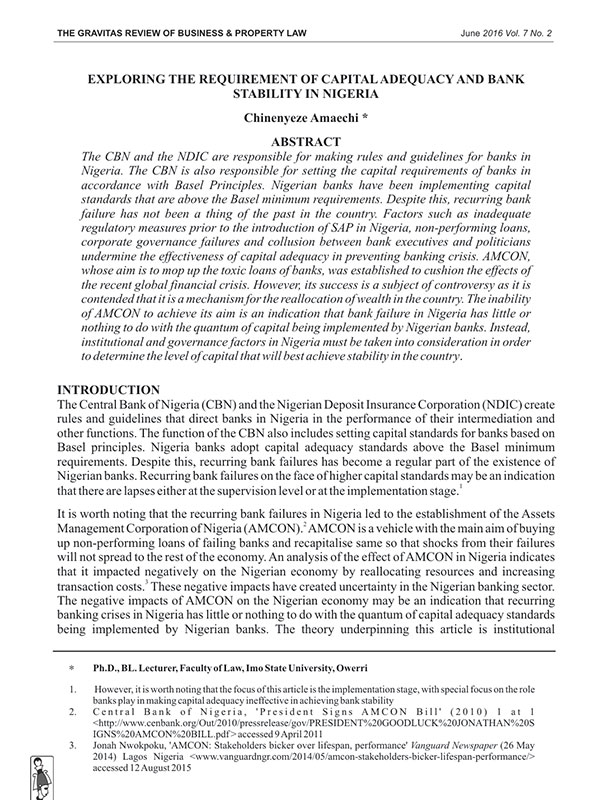
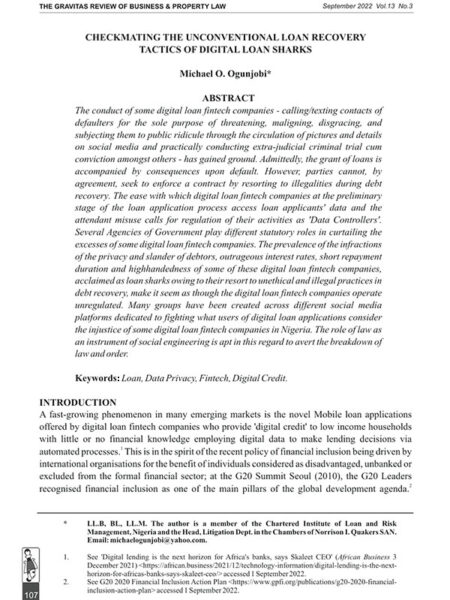
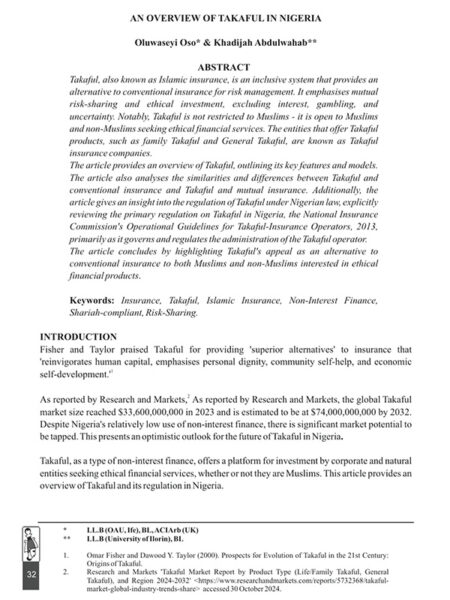
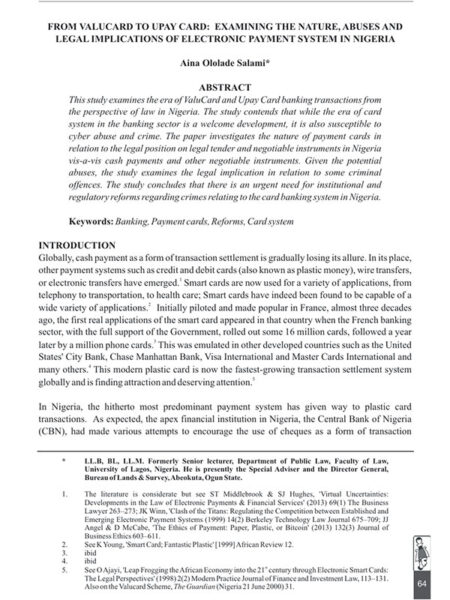
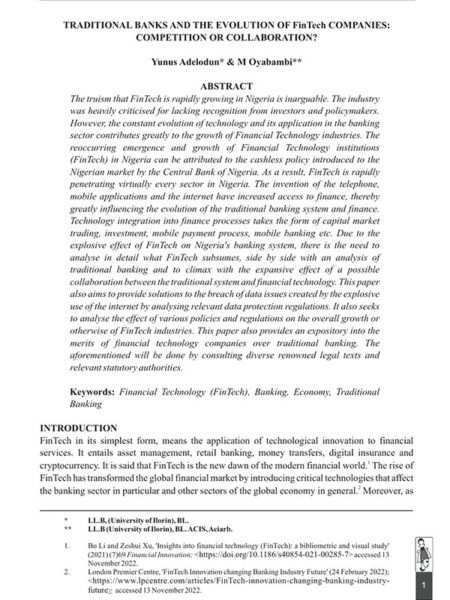


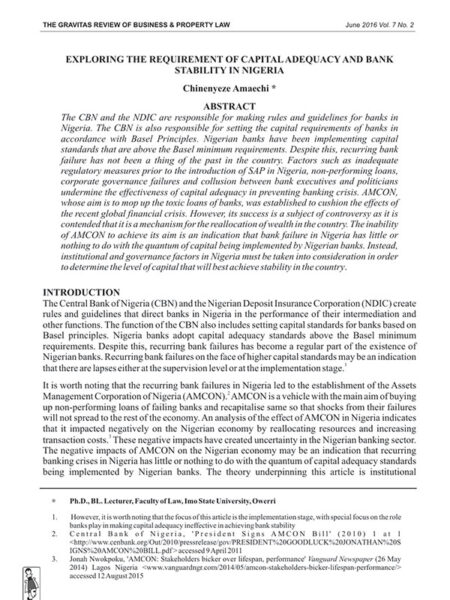
Reviews
There are no reviews yet.